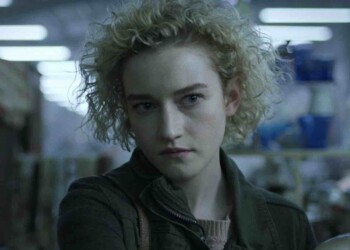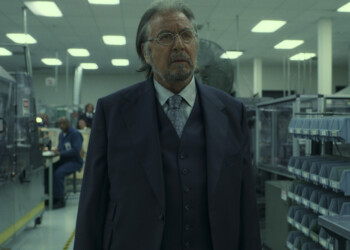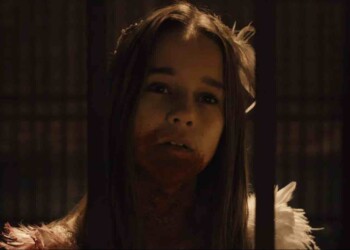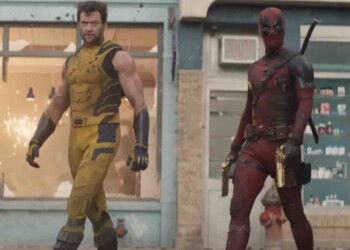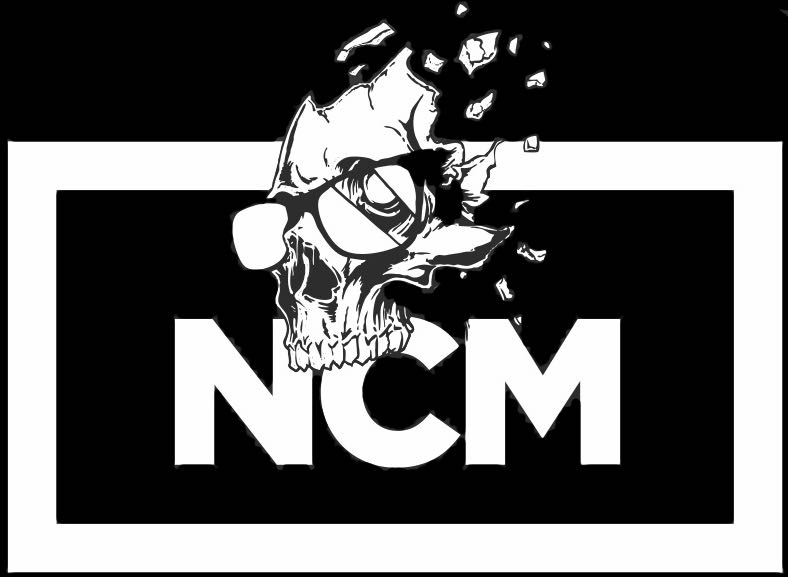Here’s our review for “Black Panther: Wakanda Forever,” which serves as a fitting tribute to the late, great Chadwick Boseman…
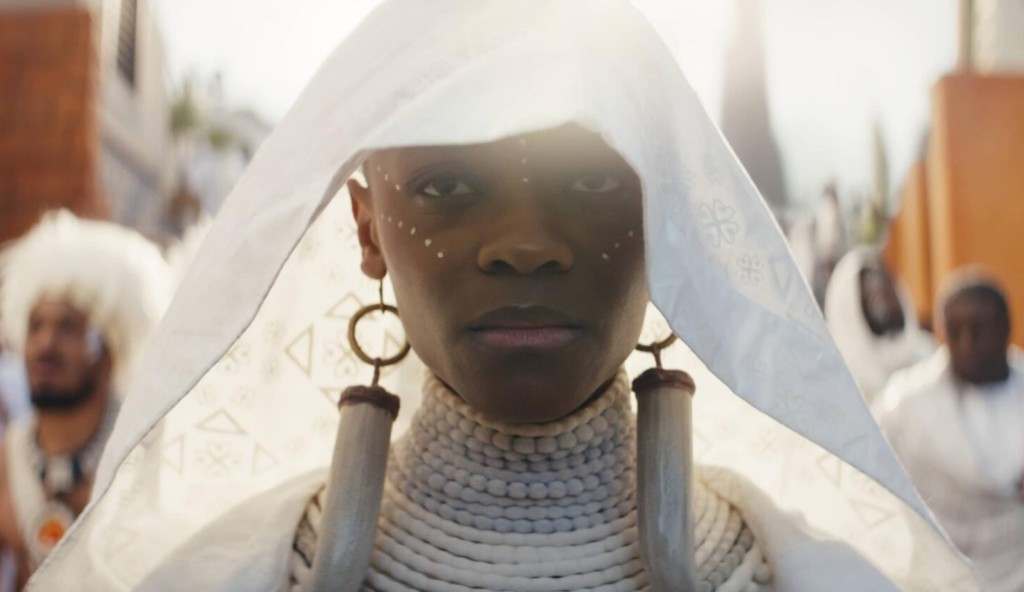
By Damon Martin — Editor/Lead Writer
Marvel Studios have created some of the biggest films over the past 15 years with blockbuster after blockbuster but it’s hard to argue against “Black Panther” as possibly the movie that made the biggest impact both critically and commercially.
The film was a smash hit at the box office that eventually earned an Oscar nod for Best Picture — the first and only Marvel movie to get that kind of recognition — but more importantly it was a movie that became a cultural phenomenon. Ryan Coogler, who had already proved himself as a filmmaker, helped create a film version of a beloved comic book character in T’Challa aka The Black Panther while Chadwick Boseman embodied everything necessary as the King of Wakanda.
Tragically after his last appearance in “Avengers: Endgame,” Boseman lost his life following a battle with cancer and for a moment it appeared that perhaps the “Black Panther” franchise wouldn’t move forward. Considering he was a charismatic and powerful leading man, it would be completely understandable if Coogler and company just decided to turn the page and let the first film serve notice as one of the greatest comic book adaptations in history.
But instead, Coogler got back in the lab and decided to craft a story that would not only pay tribute to his fallen friend but it would create a mythology still largely centered around the legacy that Boseman left behind while giving all of the actors who worked alongside him a chance to reunite for a sequel that would undoubtedly make him proud.
The end result is “Black Panther: Wakanda Forever,” which lands in theaters on Friday.
It is without a shadow of a doubt the most emotionally taxing film that Marvel has ever made because while it was difficult to say goodbye to characters in past movies — here’s looking at you Tony Stark — this movie is forced to deal with the real life tragedy that is Boseman’s passing. Every inch of this film has his fingerprints all over it — as it should — but Coogler somehow manages to pull an incredibly effective magic trick that eventually moves the franchise forward as if Boseman himself was giving the sequel his blessing and a gentle nudge.
With that said, let’s get to our full review for “Black Panther: Wakanda Forever”…
PLOT
The film opens with a somber moment in the nation of Wakanda as King T’Challa has passed away after falling prey to a mysterious illness. His death sends reverberations throughout the entire kingdom but especially to those closest to him. His mother is named queen while his sister Shuri sinks further into her own grief as she somehow blames herself for not finding some way to save T’Challa’s life.
One year later, Queen Ramonda is summoned to the United Nations where she’s questioned about Wakanda’s reserves of Vibranium — the unbreakable and undetectable metal that could become the world’s greatest weapon. World leaders believe that Wakanda should be sharing this resource or at least harboring it in such a way that Vibranium doesn’t suddenly become a threat should it fall into the wrong hands.
Meanwhile, a United States research team determined to find out if Vibranium exists anywhere outside of Wakanda stumbles upon the valuable metal deeply embedded in a pocket of the ocean. When they attempt to zero in on the location and extract the Vibranium, the research team soon discovers that they are not alone in the murky depths of the ocean after a powerful mutant named Namor makes his presence known.
ACTING, DIRECTING AND SCRIPT
Let’s start with directing because at this point it’s obvious that Ryan Coogler can do no wrong.
Thus far in his stellar career, he’s directed four films — “Fruitvale Station,” “Creed,” “Black Panther” and now “Black Panther: Wakanda Forever” — and he just keeps getting better and better with more experience behind the camera. Coogler still manages to make an eye-popping spectacle with enough awe-inspiring visuals that will keep the thirstiest comic book fan satiated but he also always gets the absolute best out of both the script and the actors performing in the film.
Coogler is absolutely masterful in everything that he executes in this film because it’s a massive endeavor yet somehow still feels intimate and truly personal. He cranks up the emotional resonance in this movie, for obvious reasons, yet still manages to inject enough levity that it still feels like a Marvel film at its core.
The script by Coogler and Joe Robert Cole somehow manages to feel like the perfect way to pay homage to Boseman’s legacy yet never losing sight of how the story has to move forward without him, as difficult as that may be. The dialogue is strong and the actual story in this film is among the best that Marvel has ever produced.
Now let’s get to the acting because there are a lot of awards to hand out here.
First off let’s start with the queen herself Angela Bassett, who absolutely embodies a reluctant monarch forced to rule following the tragic loss of her son. Bassett is good in everything she does but she raises the level for acting in a comic book film while also managing to makg everyone around her that much better.
Letitia Wright, who plays Shuri, has to do a lot of heavy lifting in this film yet she manages to hold the weight of the world on her shoulders while still portraying a nearly broken sister who can’t believe her brother is gone. Wright was a breakout performer in the original “Black Panther” but this time around she’s the lead and she deserves every ounce of credit — this time for a standout performance.
Much like Bassett, Lupita Nyong’o stealing the show in every scene where she appears should come as no surprise and Winston Duke’s booming portrayal as M’Baku is a welcome return.
Then there’s Tenoch Huerta Meija, who portrays Namor, and let’s just say he’s going to become an ‘A’ list star after enough people see this sequel. Meija is magnetic and intimidating as the king of the sea yet he still manages to show a tender side when you realize that he’s a ruler who ultimately just loves his people more than anything else.
When nominations for major awards start getting announced, Meija and Bassett better be on just about everyone’s short list.
WHAT’S WRONG WITH THE MOVIE?
This is the section where I’ll always give an honest assessment with at least a criticism or two of something that could have been done better even in the best of films. The problem is “Black Panther: Wakanda Forever” is essentially a flawless movie.
The performances are top notch. The story is compelling, action-packed yet still emotionally taxing in all the ways you’d expect it to be. Perhaps the best part is that this film doesn’t paint anything in black and white in terms of a story that’s just broken down into good versus evil.
Coogler realizes that the best possible version of this film needed to exist in a grey area where you can sympathize and understand where the supposed villain is coming from while still rooting for the heroes. Marvel has struggled at times to create compelling bad guys except it’s hard to paint anybody with that label in this film, which makes it that much better in the end.
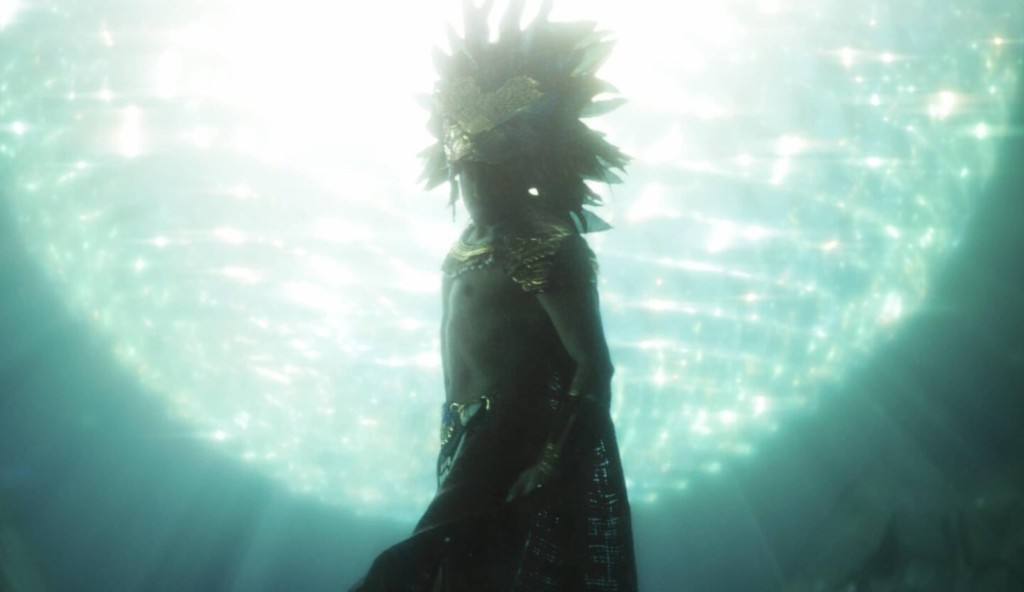
FINAL VERDICT
You’ll laugh, you’ll cry and you’ll cheer. That’s exactly what “Black Panther: Wakanda Forever” produces over the 2 hour and 47 minute run time that barely feels that long once you leave the theater. It’s heartbreaking yet hopeful. It’s tragic yet triumphant.
It’s everything you want out of this sequel and a movie that never forgets about the shadow that still looms large from Boseman and his portrayal of T’Challa. Also make sure to stick around for a jaw-dropping mid-credit sequence, although you can leave after that because there’s not a second scene that will keep you in the theater.
Overall, “Black Panther: Wakanda Forever” gets five out of five on the Skolnick Scale:


